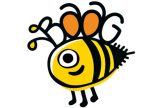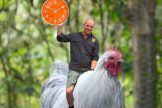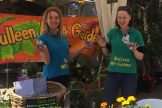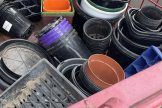
I have been lucky to have been able to spend much of my working life surrounded by plants; studying and working in the natural environment, in local gardens and in garden centres. Like many of us, I love the opportunity to get out of the city and into the wilderness, regrettably these days it doesn’t happen quite as often as I would like. Fortunately Melbourne has been gifted with an amazing combination of parks and reserves that provide us relief from our increasingly busy lives and a sanctuary for many native species that share our city and surrounds.
What are urban ecological systems
In nature the line between the natural and built environment is never as clear cut as you might expect. Interactions are continuous. Native animals and plants seek out new habitat while combating the impacts of humans and invasive species. These interactions make up the urban ecology and the systems that we are all a part of. Within this space there are winners and losers, some species flourish while others retreat. The influence of environmental factors caused primarily by human activities can be great, altering temperature; nutrient and water availability among other influences can tip the balance, shifting species composition and overall diversity.
Connecting your balcony or backyard into the real world matters.
From the biggest parklands to shoe box sized inner city courtyards, they all matter to the critters that live within and they need your help to connect. Many of our native fauna have evolved to travel over large areas. The Gould’s wattled bat for example weighs just 14 grams and can travel over 15 kilometres in one night while foraging on insects across urban and natural environments. Others travel less distance and need habitat links between the larger parklands to provide food and shelter. These stepping stones are our gardens and street trees. By providing a welcoming environment, we can help to protect our native fauna. In an increasingly urbanised surround the suburban refuges that we create are critical for their survival.
A healthy urban ecological systems matters for people.
From personal health and wellbeing to long term disease control and food security. Connecting yourself and your garden to the natural world that surrounds us is critically important. Slowing down and simply being in nature can reduce stress and improve your quality of life. We stand to lose 20 to 25% of all animal and plant species over the next 20 years if current trends continue. We have the responsibility to halt the decline and protect what we currently have. Future generations will have far fewer food sources and less access to nature’s incredible laboratory of yet to be discovered nature based antibiotics and disease curing compounds.
Wombats, chocolate lilies, powerful owls and lots more can be seen in our local parks if know when and where to look!





